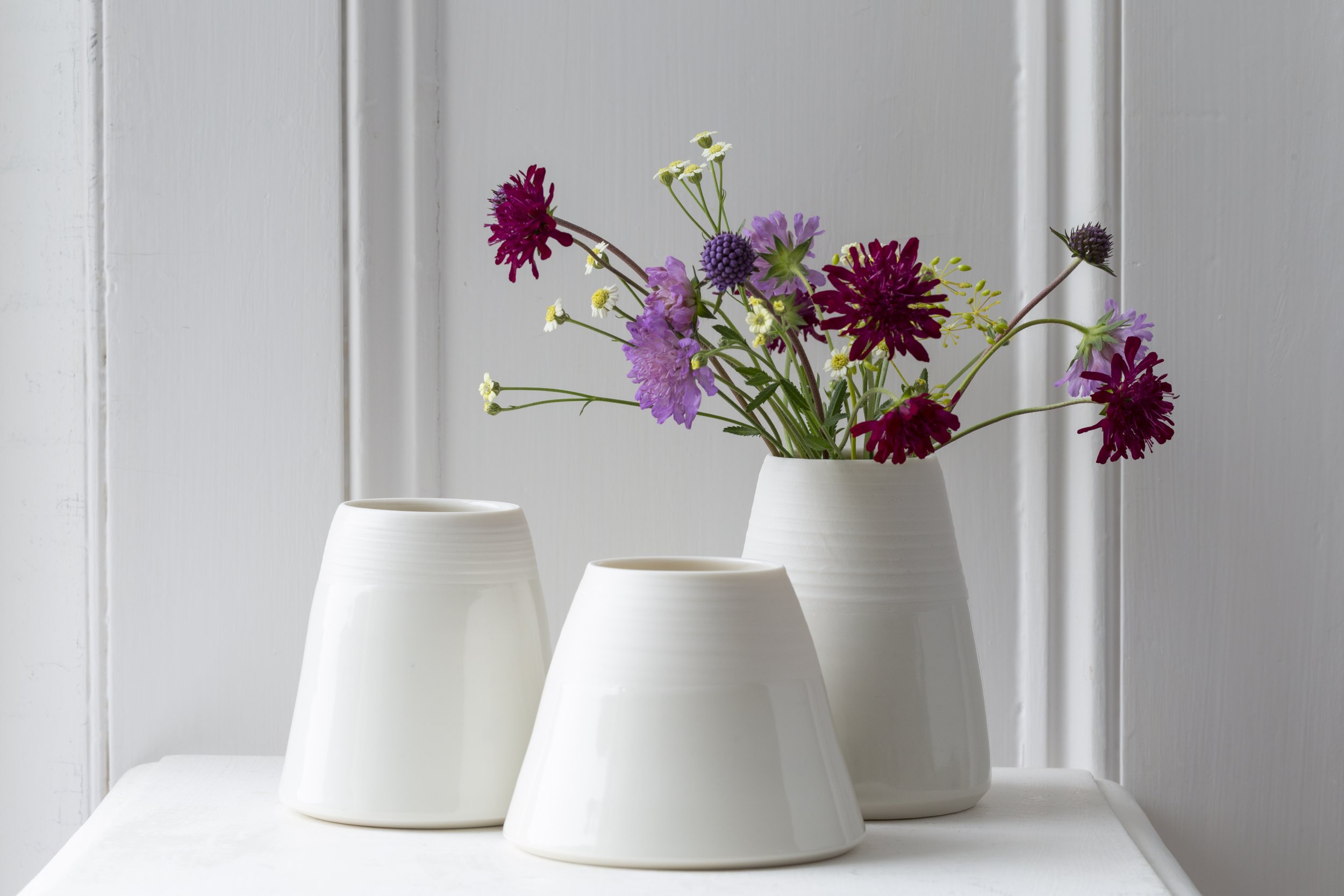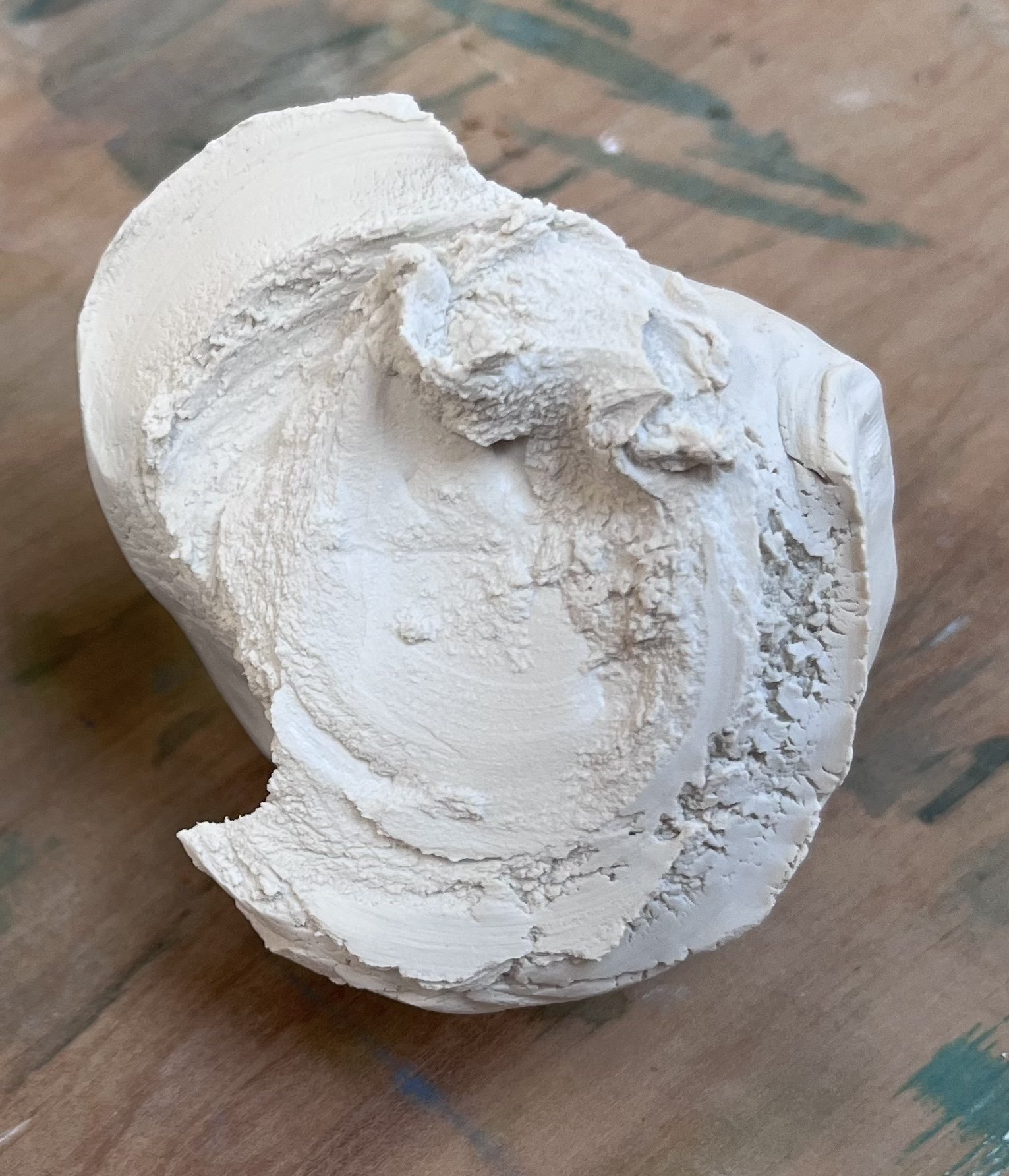
SUSTAINABILITY
Reduce l Recycle l Reuse
Clay and many of the raw materials are mined from the ground and are a non-renewable resource. It will be a while before the world runs out of clay but it’s true to say the natural processes which form clay cannot keep pace with the rate it is being mined.
Individual studio potters generally do not impact the environment on the scale of industrial ceramics, our work does not have a significant carbon footprint compared to mass produced tableware, however even the smallest change can have an impact. Handmade pottery is not 100% without an environmental footprint but it is a far, far better option than mass produced tableware and the premium on handmade pottery encourages the customer to care for and extend the life of their pottery - there actually is no reason why it should end up in landfill. Well-made ceramics can be used forever if it’s properly cared for.
Many potters and artists are already in touch with the earth (quite literally) and tend to be relatively aware of environmental issues. Vessel Ceramics aims to reduce the impact of its business wherever possible and has signed up to the Green Maker Initiative (GMI).
Craft Makers based in the Southwest can become pledged Green Makers by signing up to the GMI, which provides support and advice for crafts individuals and groups committed to reducing their environmental impact.
What is the Green Maker Initiative?
Working with the EDRF funded Low Carbon Devon project at University of Plymouth, MAKE Southwest are asking makers to sign a pledge to improve their environmental actions over time through a series of simple commitments. This will support them in reducing their environmental impact each year.
So how can we as small makers make a difference in our day to day studio practices? Here are some recommendations I have incorporated into the practices at Vessel Ceramics:
Green Maker Notes – How I Maximise Efficiency and try to reduce Vessel Ceramics’ carbon footprint.
When possible, use the highly efficient, energy-saving Rhode Kilns – 3 layer new insulating concept 230V supply Output 2.9 KW uses 46 KW/h & saves up to 20% energy each firing.
Green Energy (totally renewable) tariff from Octopus
Ensure kiln is fully packed for each firing
Use low-fire, earthenware clay and glazes to reduce energy use
Reduce porcelain firing times & temperature from 1270*C to 1240*C
Fire at night
Make own glazes
Use wax to reduce glaze waste
Recycle all waste glaze and re-use
Use burnishing & polishing when possible to limit virgin material use
Don’t use toxic pollutants like lead or barium in glazes
Recycle all clay trimmings, waste & slip and reuse
Use a local supplier to reduce transport costs
Use local clay when possible
Reducing oxide use – investigating ethical & ecological mining practices
Minimal water consumption
Use 3 bucket rinse system with no materials being released into the drainage system
Make own tools
Use recyclable or renewable packaging materials
Check out more ideas on Instagram using the hashtag #pottersforsustainability


